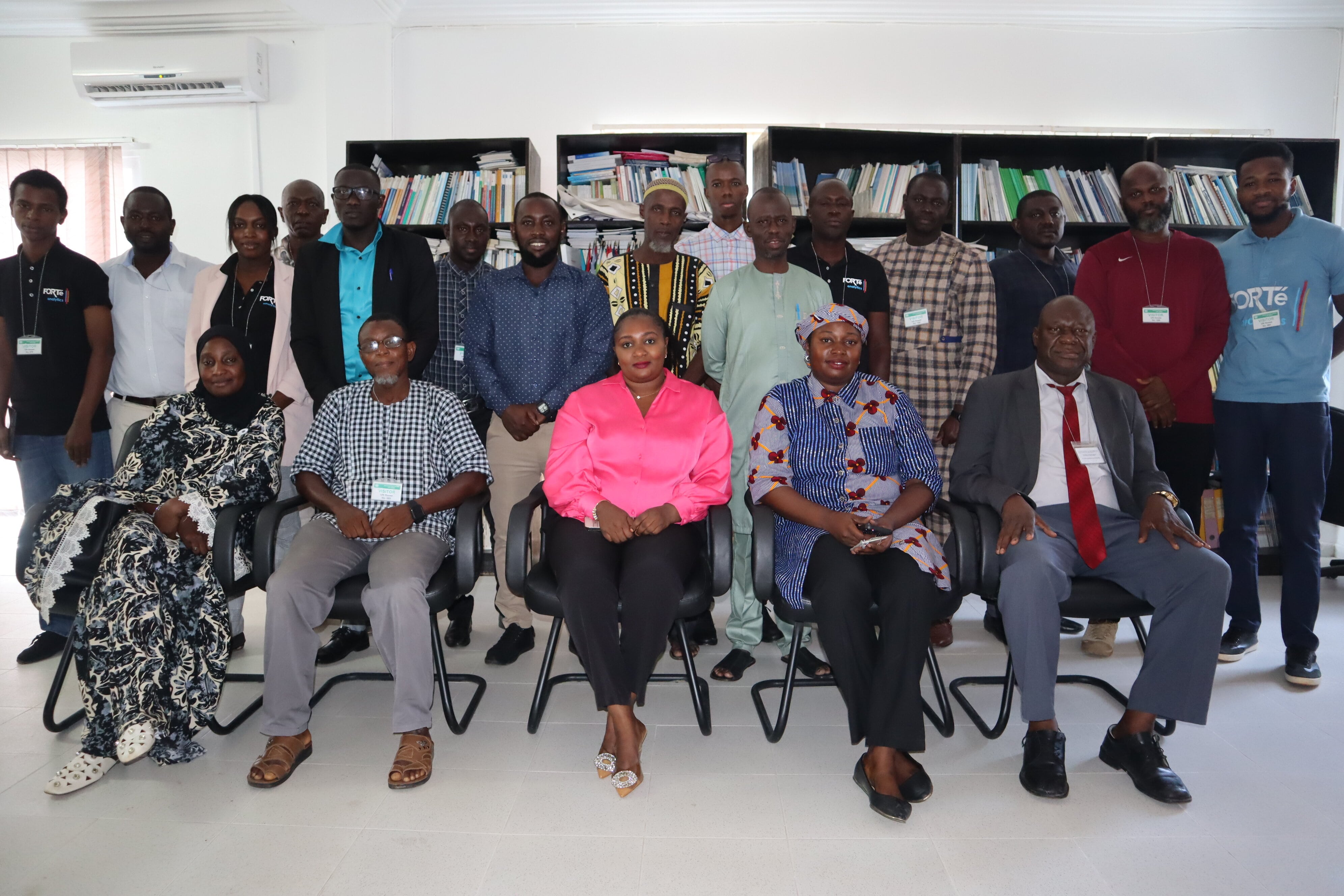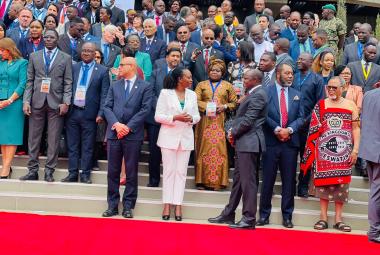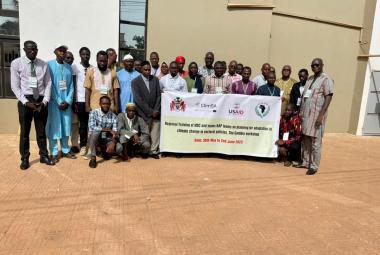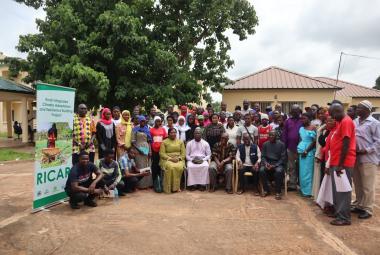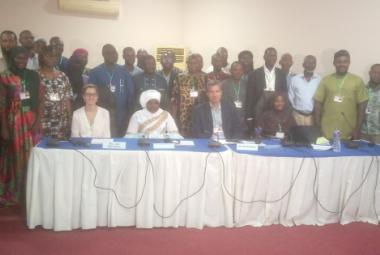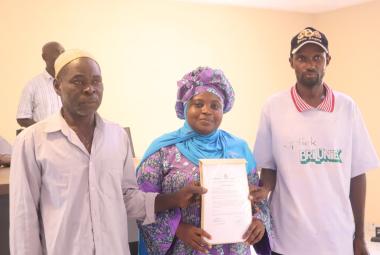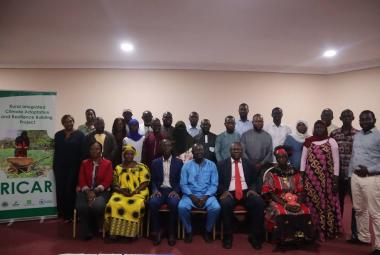The Ministry of Environment, Climate Change and Natural Resources through the Rural Integrated Climate Adaptation and Resilience Rural Integrated Climate Adaptation and Resilience (RICAR) project in collaboration with the World Food Programme on Wednesday, 23 August 2023 held a stakeholder inception meeting for the development of the Knowledge Management (KM) and Monitoring & Evaluation System.
The Knowledge Management and M&E system seeks to promote systematic learning and dissemination of information, which will set out how the innovative approaches and activities of the project will be documented and shared, with associated policy advocacy activities undertaken by the ministry.
It will ensure that knowledge is gathered, shared, and utilized across departments and project components. The system will also contribute to addressing knowledge gaps, promoting systematic learning, and encouragement of evidence-based storytelling, Case studies, and best practices.
Speaking on behalf of the Deputy Country Representative of the World Food Programme, Mr. Salifu Jaiteh said that Knowledge management has been a problem in many sectors of the country. ‘’This is a great opportunity for all information related to climate change to be gathered in one service, which people can have access to information.’’ He noted
Highlighting the challenges faced with data and information sharing in the country, Mrs. Mariama Ndow-Jarjue stated that this knowledge management system could not have come at the right time. She said it will bring in result efficiency and promote information sharing.
The objective of the inception session was to ensure the successful implementation of the assignment through stakeholder inclusiveness and ownership of the KM system. It was intended to establish a common stakeholder understanding of the Terms of Reference (TOR).
The stakeholder engagement focused on achieving the following specific objectives: joint technical and endorsement of proposed methodologies, approaches, and work plan for the execution of the assignment; to create awareness and explore opportunities for synergies and collaboration with other ongoing initiatives implemented by projects and institutions; and to enhance better understanding among the implementing partners and staff about roles and responsibilities.

